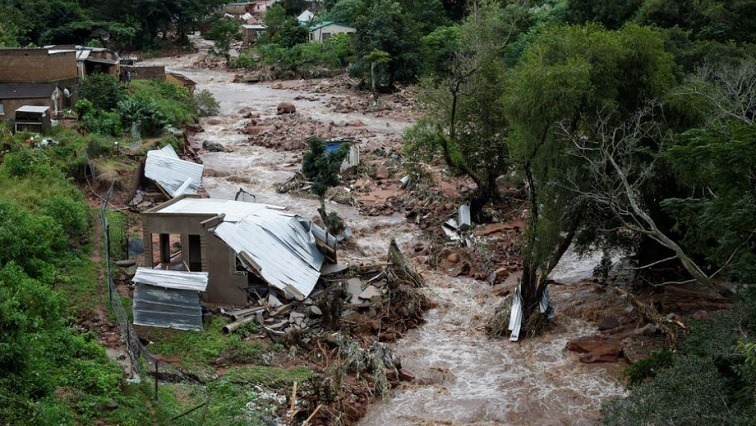Destitute families, whose homes have been flooded by recent heavy rainfalls in Pieter Swart in Bloemfontein say they have accepted that their homes have now turned into ponds filled with dirty water. About 12 households in the area have been affected by the heavy rainfalls four days ago.
Since then, the fluctuating rain has continued flooding their homes.
Nontuthuzelo Masisi, a 33-year-old mother of three who stays with her pensioner parent, is one of the families whose home has been flooded.
Masisi predicts that they will be living under muddy conditions for the next month before their homes can be dry.
“As long as there is water outside, we know this is the life that we’ll be subjected to. If it gets hot and gets dry outside, then we’ll be able to clean although it will take longer for us to remove the water as it comes from the ground. We’re not right. The flooding has made us suffer. We’re just staying here because there’s nothing else we can do about it.”
The South African Red Cross Society in the Free State says it is not habitable for people living under muddy, wet conditions caused by recent heavy rainfall.
According to the humanitarian organisation’s provincial manager, Claudia Mangwegape, an assessment report has been conducted and provided to various stakeholders.
“We did conduct an assessment and we did submit the assessment to the municipality including the PDMC, which is the Provincial Disaster Management Centre and as the result, through our engagement with the municipality, we did make some recommendations as well, that water had to be drained, in some of the houses that we have assessed. Particularly, we’ve got three houses that are in serious conditions and it’s not habitable for people to be staying in those conditions. We urged the municipality to come on board and assist in terms of draining the water and also to come and assist in terms of the gravel within the area, so that when it rains the water doesn’t go through to the houses,” says Mangwegape.


